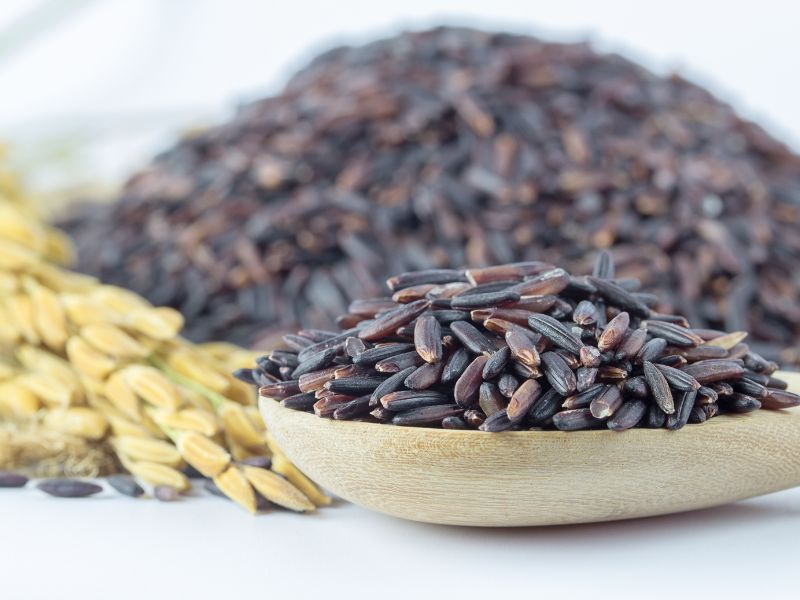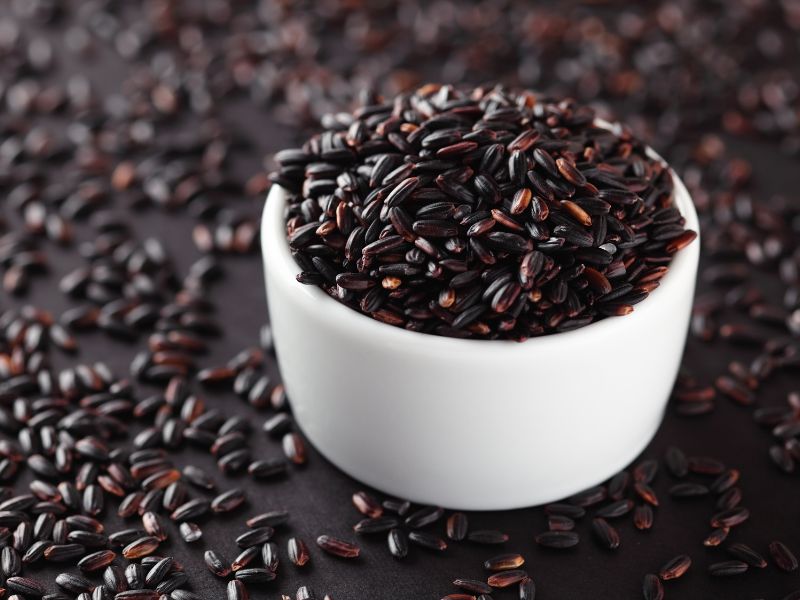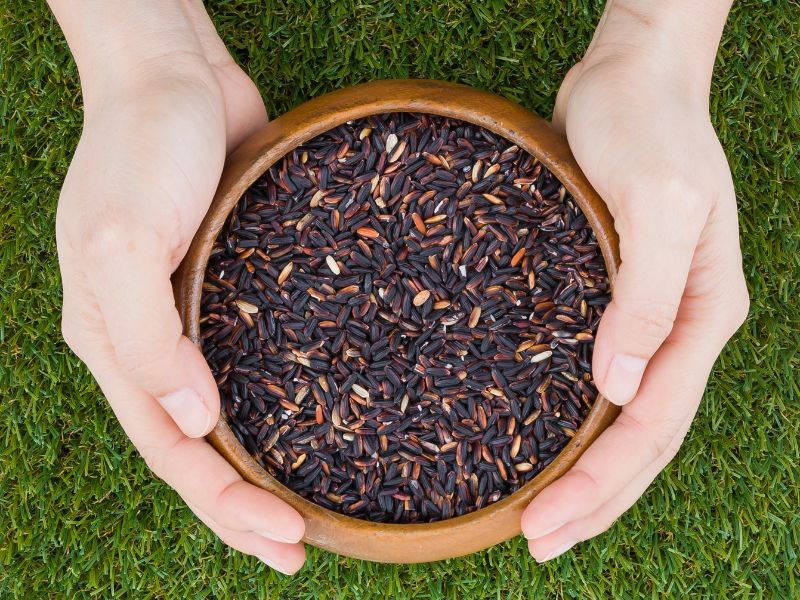Black rice, also known as forbidden rice, is a type of rice that has been revered for its impressive health benefits for centuries. With its deep, dark hue and distinctive nutty flavor, black rice stands out for its unique appearance and exceptional nutritional profile. This article will explore the remarkable health benefits of incorporating black rice into your diet.
Rich In Antioxidants
One of the most notable features of black rice is its high antioxidant content. The deep purple-black color is attributed to its rich anthocyanin content, a type of antioxidant linked to a wide range of health benefits. Antioxidants help combat oxidative stress and reduce inflammation in the body, playing a crucial role in preventing chronic diseases and supporting overall well-being.

Canva. com
Heart Health
Consuming black rice may contribute to a healthy heart. Studies have shown that the anthocyanins in black rice can help reduce cholesterol levels, lower blood pressure, and improve overall cardiovascular health. Additionally, the fiber content in black rice helps regulate cholesterol levels and maintain a healthy circulatory system.
Weight Management
Black rice is an excellent option for those looking to manage their weight. Its high fiber content promotes a feeling of fullness, which can help reduce overall calorie intake. Additionally, black rice has a lower glycemic index than white rice, meaning it has a slower impact on blood sugar levels, providing sustained energy and reducing cravings.

Canva. com
Digestive Health
Black rice is an excellent dietary fiber source for a healthy digestive system. Fiber helps promote regular bowel movements, prevent constipation, and support a balanced gut microbiome. A healthy digestive system is fundamental to overall well-being and can help prevent gastrointestinal issues.
Rich In Essential Nutrients
Black rice is a nutritional powerhouse packed with essential vitamins and minerals such as iron, magnesium, and zinc. These nutrients are vital in various bodily functions, including energy production, immune system function, and bone health.
